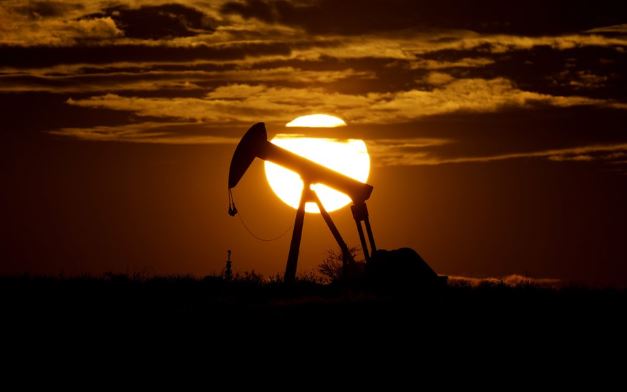
The sun sets behind an idle pump jack near Karnes City, Texas, on Apr. 8, 2020. (Photo: AP)
OPEC and allied nations agreed Saturday to extend a production cut of nearly 10 million barrels of oil a day through the end of July, hoping to encourage stability in energy markets hard hit by the coronavirus-induced global economic crisis.
Ministers of the cartel and outside nations led by Russia met via video conference to adopt the measure, aimed at cutting the excess production depressing prices as global aviation remains largely grounded due to the pandemic. The curbed output represents some 10% of the world’s overall supply.
But danger still lurks for the market, even as a number of nations ease virus-related lockdowns, and enforcing compliance remains thorny.
Algerian Oil Minister Mohamed Arkab, the current OPEC president, warned meeting attendees that the global oil inventory would soar to 1.5 billion barrels by the mid-point of this year.
“Despite the progress to date, we cannot afford to rest on our laurels,” Arkab said. “The challenges we face remain daunting.”
That was a message echoed by Saudi Oil Minister Abdulaziz bin Salman, who acknowledged “we all have made sacrifices to make it where we are today.” He said he remained shocked by the day in April when US oil futures plunged below zero.
“There are encouraging signs we are over the worst,” he said.
Russian Energy Minister Alexander Novak similarly called April “the worst month in history” for the global oil market.
The decision came in a unanimous vote, Energy Minister Suhail al-Mazrouei of the United Arab Emirates wrote on Twitter. He called it “a courageous decision.”
But it is only a one-month extension of a production cut that was deep enough “to keep prices from going so low that it creates global financial risk but not enough to make prices very high, which would be a burden to consumers in a recessionary time,” said Amy Myers Jaffe, senior fellow at the Council for Foreign Relations.
“There is so much uncertainty that I think they took a conservative approach,” she said. “You don’t know how much production is going to come back on. You don’t know what’s going to happen with demand. You don’t know if there’s going to be a second (pandemic) wave.”
Jaffe said improved oil demand in China and Asia and a gradual stabilization of demand in the United States and to some extent Europe, where there’s some cautious economic reopening, were encouraging for producers.
OPEC has 13 member states and is largely dominated by oil-rich Saudi Arabia. The additional countries involved part in the so-called OPEC Plus accord have been led by Russia, with Mexico under President Andrés Manuel López Obrador playing a considerable role at the last minute in the initial agreement.
Crude oil prices have been gaining in recent days, in part on hopes OPEC would continue the cut. International benchmark Brent crude traded Saturday at over $42 a barrel. Brent had crashed below $20 a barrel in April.


